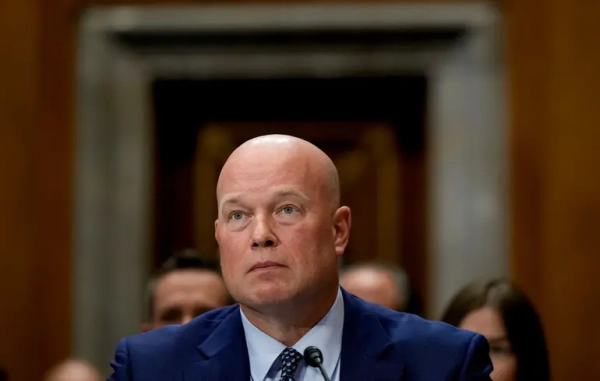
The partial government shutdown is expected to hit one group of workers particularly hard … and it’s not members of Congress.
While roughly 800,000 government employees are set to be affected by the shutdown and likely won’t see back pay until after it’s resolved, another subset of contractors isn’t going to be paid at all.
As many as 2,000 subcontractors in federal buildings including janitors, security guards, and cafeteria servers are not only experiencing a sharp break in their work schedules, they also won’t be compensated for this pause, according to 32BJ SEIU, a labor union that represents many building service workers caught up in this shutdown.
Government employees typically receive back pay after the shutdown is over, but contractors are paid directly by companies that can’t bill the government for services when it’s shut down. Because these companies won’t get paid, they, in turn, aren’t able to pay their workers. 32BJ spokesperson Frank Soults notes, however, that some workers have returned to their jobs and will continue to receive their salaries uninterrupted — though they could be relying on different funding sources.
Workers at the Statue of Liberty are being funded by the New York state government during the partial shutdown, for example, while some at the Smithsonian are being paid with reserve funds.
Others, meanwhile, have been told that they could be seeing a gaping hole in their paychecks.
“My supervisor told me we won’t be getting paid,” Bonita Williams, a janitor at the State Department told the Washington Post, “so my bills won’t be getting paid.”
Soults said that members of the union will continue to have health care coverage for at least 30 days from the start of the shutdown.
It isn’t the first time that low-wage contractors have been forced to bear the brunt of a shutdown’s effects: A similar issue emerged in 2013 when the government was closed for 16 days and many contractors faced severe cutbacks in their hours.
“It is a cowardly disgrace,” Héctor Figueroa, the president of 32BJ SEIU, said in a statement.
Congress members, meanwhile, will see no breaks in their pay whatsoever. Unlike other government employees, they won’t even have to rely on back pay because their salaries are written into the Constitution and will be continuous throughout the shutdown. Some lawmakers, including Reps. French Hill (R-AR) and Elise Stefanik (R-NY), have said they’d like their salaries withheld until the partial shutdown is over.
The government officially went into a partial shutdown last Friday at midnight after lawmakers were unable to reach an agreement over funding for Trump’s border wall. Now that the government is reopening after the Christmas holiday, the shutdown’s effects are becoming increasingly apparent.
The president has said that workers support the shutdown. Unions disagree.
While federal employees and contractors are the ones most likely to feel the impact of a shutdown, Trump has claimed that they support his effort to close down the government over the border wall.
“Many of those workers have said to me and communicated, ‘stay out until you get the funding for the wall,’” he said on Tuesday. “These federal workers want the wall.”
Not so, says groups including 32BJ SEIU, the International Federation of Professional and Technical Engineers, and the American Federation for Government Employees, all of which are unions representing government employees or contractors.
“The president falsely claims that ‘many’ federal workers support the shutdown and have told him to ‘stay out,’” says IFPTE President Paul Shearon in a statement. “We have not heard from a single member who supports the president’s inaction. Most view this as an act of ineptitude.”
Contrary to Trump’s claims, these unions aren’t egging the shutdown on so much as aggressively urging the president and Congress to work toward a solution that would reopen the government.
As things stand, it’s not exactly clear what that solution will look like.
Sourse: vox.com






